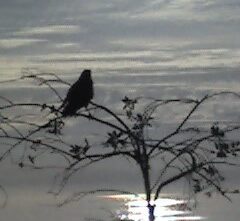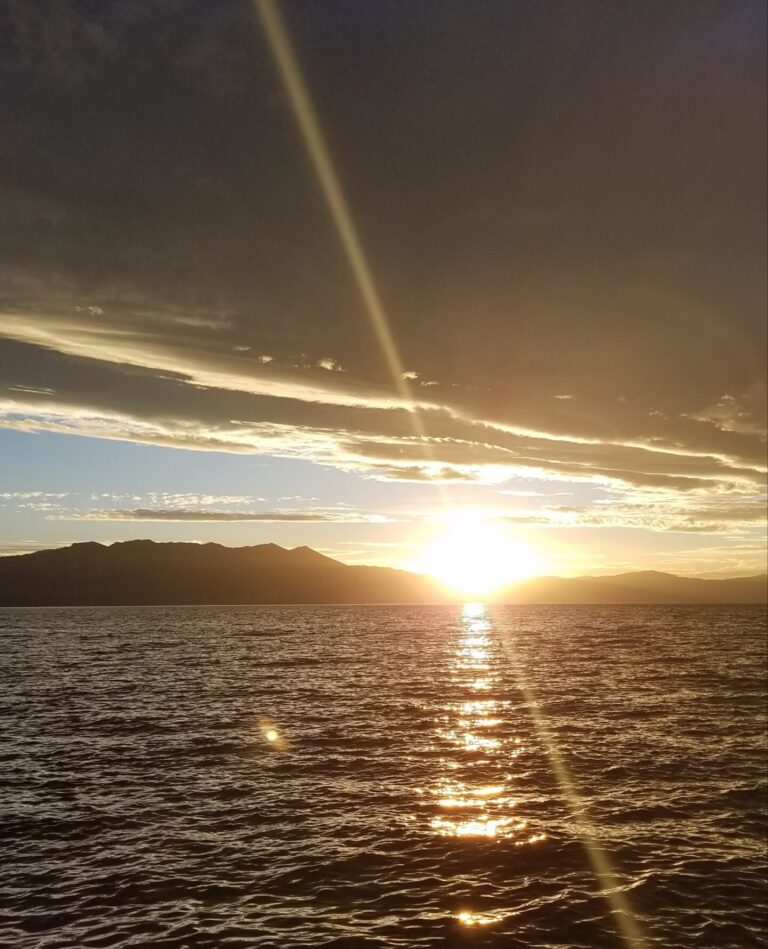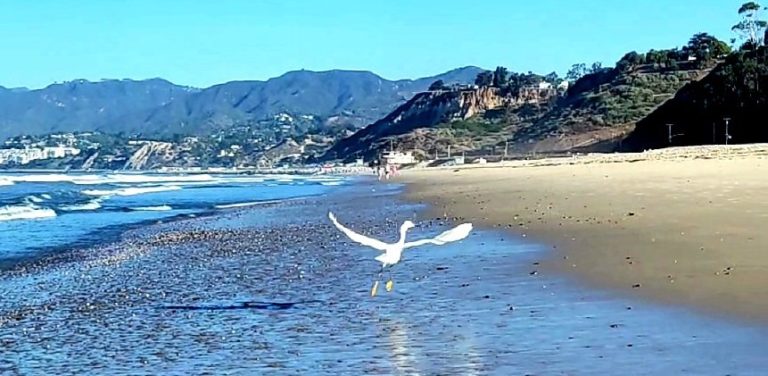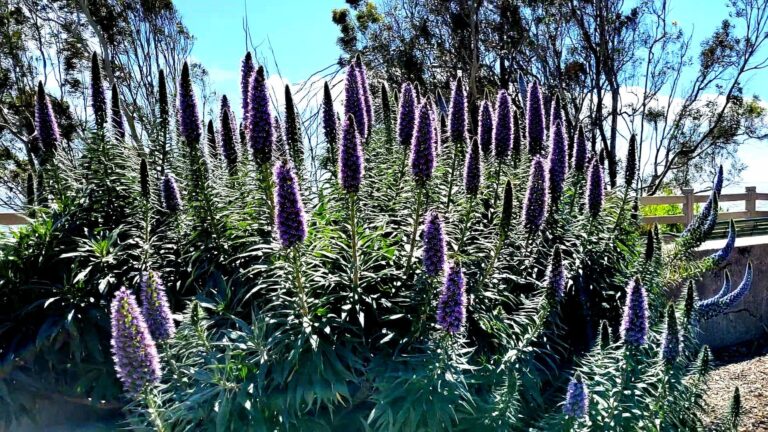Amy K. Genova – 3 Poems
In college, I stole shrimp and celery for Mother’s Day. A grocer asked if I paid for the groceries in...

Samuel Clemens & the Sandwich Islands
The smell of sulfur is strong, but not unpleasant to a sinner. Mark Twain
Sam waits, with a horse between his legs, on the beach for me. For words I would lay in his mouth. Robust, 31. He’s already tried his hand at “surf bathing” and failed. But he is strapping. His jaw lined up with horizon. Amusement tickling eyes so dark, I don’t know if they’re brown or black. He’s already fingered his auburn hair. Felt the bead of sweat tick down his forehead. His heart percolating in a pocket of his linen shirt. If only he’d met me. I’d have lifted my skirts at 21. Why not? He liked drinking, carousing, poker. Fuchsia flowers contrasting with native girls’ skin. He’s already tendered a cargo apple to Ke Aloha—his rented horse. Ascended the volcano of Kilauea (kill ah way uh), smoking like a cigar.
Sam waits, a horse between his legs, on the beach for me. Nostrils filled with odor of plumy palms and blooms he cannot name. Everything’s ahead. It will be a good day, he thinks, Henry would have enjoyed it. Henry, who died years before in a steamship explosion. My sister’s face, flecked with freckles, floats in the ether. We’d have them in common, siblings—dead at 19. Peering into the volcano, Sam smiled under his mustache comb, thinking, only it’s a considerable hole. I know that chasm. Later, Sam wrote he was wrong. Nighttime was the hour to confront a volcano—his emblazoned the night sky, a devil’s revival tent stretching red for miles. Hell paints the faces of those ornery enough to witness it. Among them, Sam. Me. His eyes glistened, a roil of lava surged in his veins. Hawaii would never leave him. It’s unplumbed beauty, breath of flowers. Fire. Nor Sam’s life-long crater—getting Henry that job. His lips part. If only, I could write the words.
Breaking the Rules
At four I kidnapped Ragsy’s puppies, warm rounds with crescent ears, hid them in a chest of drawers. My mom called them ugly. Everyone searched for puppies, until I confessed. Their paws tracked inside my heart for years. Can’t say why I drizzled gravel over Mrs. Ginsberg’s indoor Ficus. I filched a bite from the bottom of her angel food cake baked for a bridge party. I ate an inch of hem to make to the cake even, but shorter. Escaped outside, until she screamed, Amy Genova—get over here! In first grade, I copied a boy’s drawing of “A for arrow.” Teacher asked what it was. Pointer, I said, panic thumbing my chest. Still, mornings my hand pinched pennies for lunch from the crumby bottom of mom’s purse. In fifth grade, I punched the new girl in the stomach for a squeaky voice. Knocked the wind out of her. The damage of my fists still wakes me. High school, I let a basketball player copy my chemistry. Made me tutor him after tests but never tried to kiss me. He smelled of oregano. Mom told me to lose weight by smoking. In order to date him. In college, I stole shrimp and celery for Mother’s Day. A grocer asked if I paid for the groceries in my bag. “Yes,” I lied. A professor asked what grade I deserved. Silly man. I didn’t sleep with him. But the philosophy chair taught me about red socks. Power of touch. Being 6 feet tall. Broke my heart cheating with his wife. When I got a kidney infection and bled in a jar, I borrowed five dollars from him for the doctor. Seemed fair. At semester’s end when the money ran out, I ate lentils. Considered the rules. As an English teacher, I crossed the t’s but ignored the i’s. Dotted exceptions. Instructed students to rewrite a code of conduct better than the Ten Commandments. I wrote on the blackboard, “Thou shalt be kind to children.” They didn’t get it.
After the Wolf
I am the cursed and enchanted
Red Riding Hood’s grandmother inside the wolf
She who is honored and ignored
Giver of capes and icer of cakes
I am the fanged and favored
A poet still possessing her tongue
I am she
Do not be afraid of my power
You are the blood of my name
and name of my blood
Walk the way of yourself as a wildness
For you are butterfly weeds and wings
Arrive upon yourself as a meadow
Whatever you pick, petal-scatters the way
Though you may be eaten
You will always be found
Inspired by The Book of Longings, Epigraph, by Sue Monk Kidd



